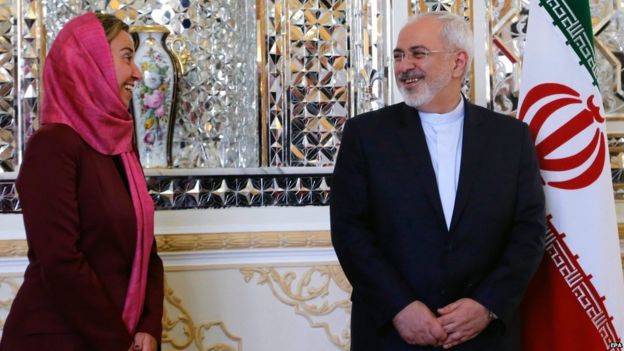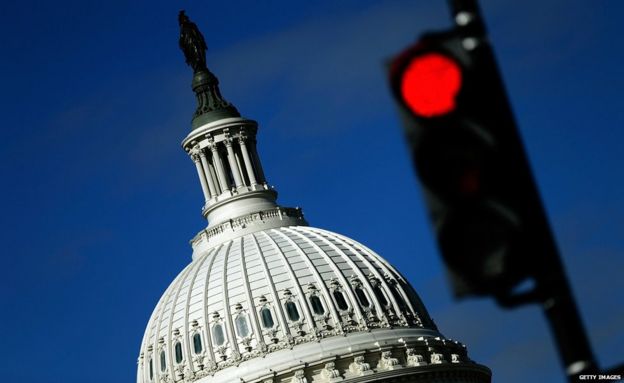Nuclear deal 'not to reform Iran', says John Kerry
By BBC News
The nuclear deal with Iran is not meant to "reform Iran's regime, or end its support for terrorism", US Secretary of State John Kerry has told US Congress.
Mr Kerry said the accord - agreed this month after two years of talks between Iran and world powers - was designed to address the "nuclear issue alone".Defending the deal before sceptical senators, he said the US would still challenge Iran on other fronts.
Congress has until 17 September to approve or reject the deal.
Under the deal, Iran must curb its nuclear activities in exchange for sanctions relief. Tehran has always insisted its nuclear ambitions are peaceful and energy-related.
The agreement follows two years of intense negotiations with the P5+1 group of world powers - the US, UK, France, China and Russia plus Germany.

Meanwhile, in Tehran...
In sparkling sunshine, the convoy of sleek Mercedes, flanked by motorcycle outriders, ferried Europe's top diplomat Federica Mogherini and her closest aides down wide, sweeping boulevards and through crowded streets towards the elegant mansion housing the foreign ministry for her first meeting of the day.Her maiden drive through the capital takes her on a tour of the symbols that define Iran: the face of Iran's revolutionary leader Ayatollah Khomeini painted on soaring walls; the iconic white monument built during the Shah's reign, now renamed "Azadi" or freedom; and the national flags that seem to flutter everywhere.
The BBC's Lyse Doucet visits Iran with the EU foreign policy chief
US government officials have gone on the offensive to convince Congress that the deal is the best they could get.
In his second appearance before the House Foreign Affairs Committee in a week, Mr Kerry emphasised that alternatives to the deal - suggested by Republicans - were "some kind of unicorn fantasy that contemplates Iran's complete capitulation".
He warned that rejecting the deal would effectively give Iran the go-ahead to build a nuclear bomb.
He added that the deal would make it easier to challenge Iran on other issues.
"It's a lot easier to push back against an Iran that doesn't have a nuclear weapon than an Iran that does," he said.

Could US Congress torpedo the deal?
- Congress has 60 days to review the agreement
- During that time, President Obama cannot lift the sanctions Congress has imposed on Iran
- Congress can reject the deal, and keep the sanctions in place, but Mr Obama can veto that
- It would need a two-thirds majority to overturn the veto, which is unlikely


0 Comments:
Post a Comment
Subscribe to Post Comments [Atom]
<< Home